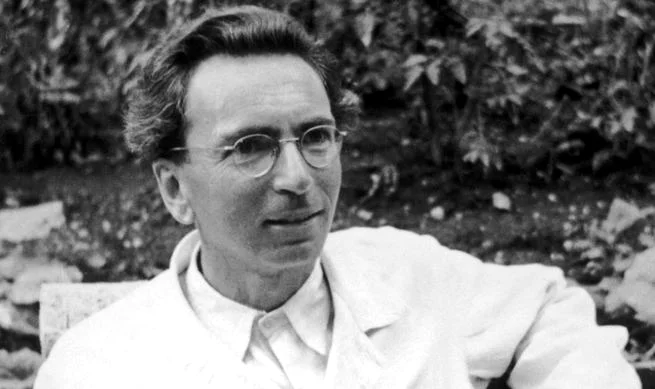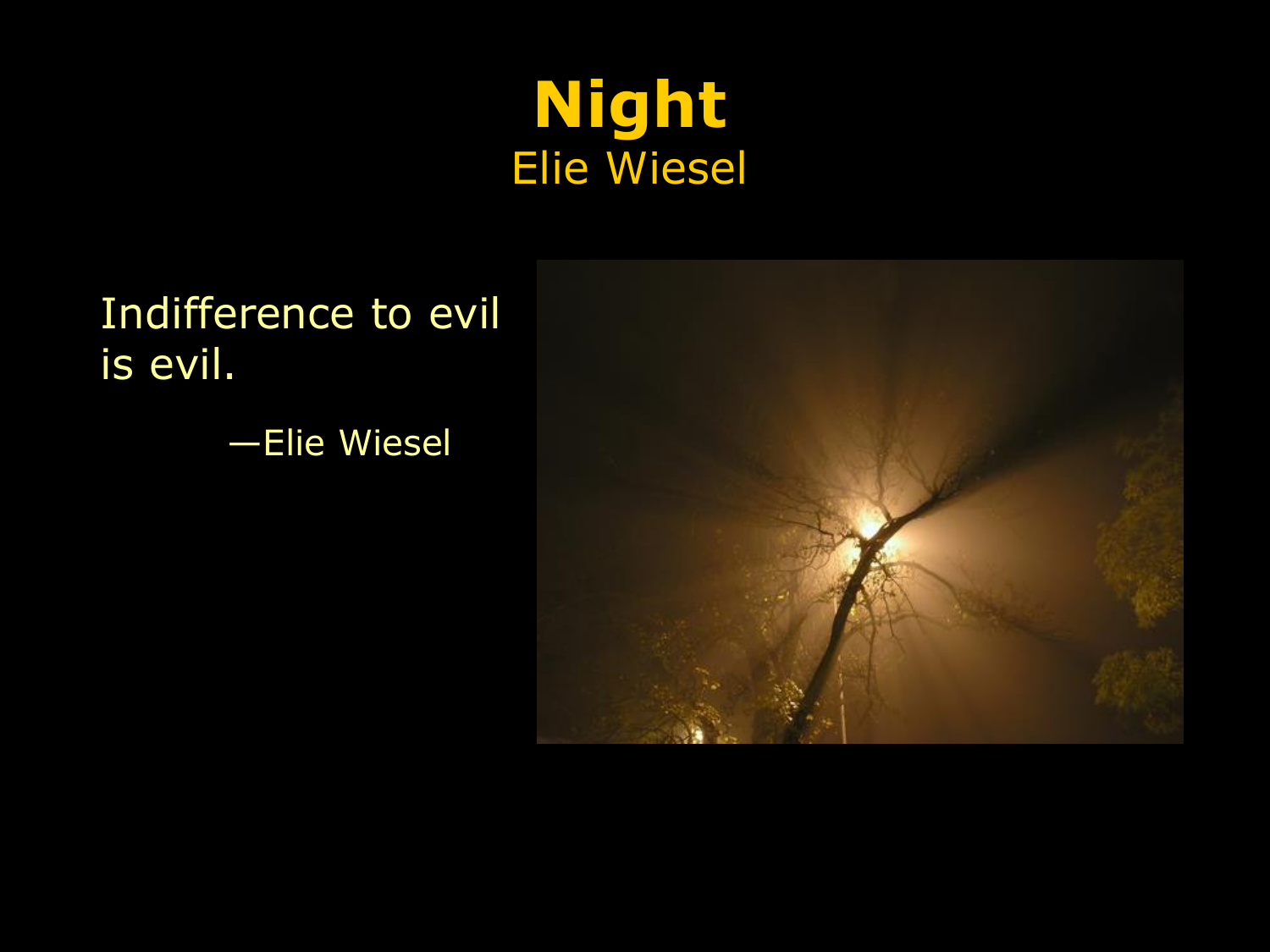Who Was Viktor Frankl and Why Was He Important
Over many years, I have read differing accounts of WWII from various perspectives. Several of note include, 'Night' and the 'The Rise and Fall of the Third Reich'. Both these and others moved me, educated and enlightened me in young my life but one stood out and informed me in my private practice.
Ensconced in college textbooks during my final run at finishing an advanced degree while at the University of Maryland, I came upon a name often referenced. In just about every class, Viktor Frankl was quoted in textbook after textbook. I finally broke down, bought and read the book, 'Man's Search for Meaning'.

To pen that I was "wowed" was an understatement. Beginning to end, his poignant tale was a quick 100 page read. The second half was devoted to mapping out logo therapy, which he devised as a result of his three year trial in the camps and today is popularized in positive psychology. Published in Germany in 1956, he wrote the book in nine (9) days. The U.S. wouldn't see the book in print until 1959, the year I was born.
Although I was raised in a rather old fashioned and strict Roman Catholic family, my parents were social and political activists. In my youth, my father and mother relocated our brood of six children from the New York metro area to Randallstown, MD in 1970. A diverse community in all manner of religiosity, as a child, I considered myself part Catholic and part Jewish, as many of my friends were Jewish. I found myself in the Synagogue as often as my friends frequented my church.

Reared in an educated family where reading was prized, my first shock exposure into WWII writing included a foray into the frightening personal accounts of WWII atrocities. One book of note and popular at the time was "Night' by Elie Wiesel. It shook me, and as a teen, these accounts scared me to the core. In my twenties, I read The Rise and Fall of the Third Reich, a volume written by William L. Shirer, who found himself blacklisted during the 1950's McCarthy era. Branded a communist and unemployable, he wrote the longest book I had ever read at the time (1,000 or more pages) and one I couldn't put down.
Shirer's work focused less on atrocities but instead zeroed in on the hostility each respective European country had for one another. He ably scoped out how Hitler used that animosity and tension with surprising success, as Germany under Hitler rule partnered with one country to take down another, repeating the methodology one country at a time. I couldn't help but liken the countries that Shirer described as the falling Domino's of Europe.

The author also meticulously laid out Hitler's biography and clarified how his deleterious character was shaped and fashioned from boyhood to his combat experience in WWI. He detailed the Mein Kompf treatise, which Hitler wrote in prison and which was published in 1925. Shirer described the 20 year stretch that separated the first World War from the second during the Weimar Republic. In painstaking detail, he gave a blow-by-blow account of the onslaught of Brown Shirts who stealth-fully assumed control of Germany, lethally slaying the country's leadership, under the cover of night both before and after Hitler's rise to power after the election of 1933
Shirer's work was only one of the storied tales of heroes and cut throats that have flowed out of WWII and continue to do so 75 years after its final end...
Viktor Frankl's name didn't cross my radar screen until some years into my thirties when I drifted back into grad school to shift my career path. His work was somewhat different, philosophical in nature. He wrote from the perspective of a trained psychiatrist and physician who had some notoriety at the time of his imprisonment. Although renowned and wealthy, he remained behind in Vienna with his parents and young wife. All were lost in the camps.
Frankl writes: “In some ways suffering ceases to be suffering at the moment it finds a meaning, such as the meaning of a sacrifice.”
― Viktor E. Frankl, Man's Search for Meaning

Frankl puts forth, “The one thing you can’t take away from me is the way I choose to respond to what you do to me. The last of one’s freedoms is to choose one’s attitude in any given circumstance.”
― Viktor E. Frankl
Upon the impending liberation of Dachau, as German soldiers were eliminating Jews too ill to exit the camp, Several prison medical staff attempt to persuade Frankl to quickly make an escape with them. Frankl again chooses to respond by remaining behind with his sick patients who beg him to stay. In the end, the patients and Frankl survive. Later, the liberation underway, as Frankl makes own exit from the camp, he notices all three medical staff lying dead at the rear of a nearby truck. In a sense, in choosing death, Frankl survives.
Over the years, I committed myself to rereading the account once a year. I purchased ten at a time and gave them to clients. Some of Frankl's account at the hospital paradoxically reminded me of a tale, "The Appointment in Samarra", an unpublished poem written by Emily Dickinson in 1890.
"The Appointment in Samarra"
(as retold by W. Somerset Maugham [1933])
The speaker is Death
There was a merchant in Bagdad who sent his servant to market to buy provisions and in a little while the servant returned. White and trembling, the servant said, Master, just now in the marketplace I was jostled by a woman in the crowd, and when I turned, I saw it was Death that jostled me. Death looked at me and made a threatening gesture. Master, lend me your horse, and I will ride away from this city and avoid my fate. I will go to Samarra where Death will not find me.

The merchant lent him his horse, and the servant mounted it. As fast as the horse could gallop, he went. Then the Master went down to the marketplace and he saw Death standing in the crowd. The Merchant came upon Death and said, Why did you make a threating gesture to my servant when you saw him this morning? That was not a threatening gesture, Death said, it was only a start of surprise. I was astonished to see your servant here in Bagdad, for I have an appointment with him tonight in Samarra.
In the book "Man's Search For Meaning," Frankl writes in detail many accounts of inmates and jailers alike trying to escape death.
Clients have over the years sat in my session room trying to control death by enabling children in various ways. One insidious circumstance is substance use. In an example from my own life, my husband and I had to put one of our young adult children out of the house due to a seemingly intractable addiction. We, in essence had to relinquish control and let her die. This understanding was a journey that came over time and we acknowledged that we had done all we could do. At its core, it was a spiritual decision in that we asked God to parent her in our absence. He did. Like Viktor Frankl facing death, our daughter survived. A another story for another day.
Until next time...
Example Text